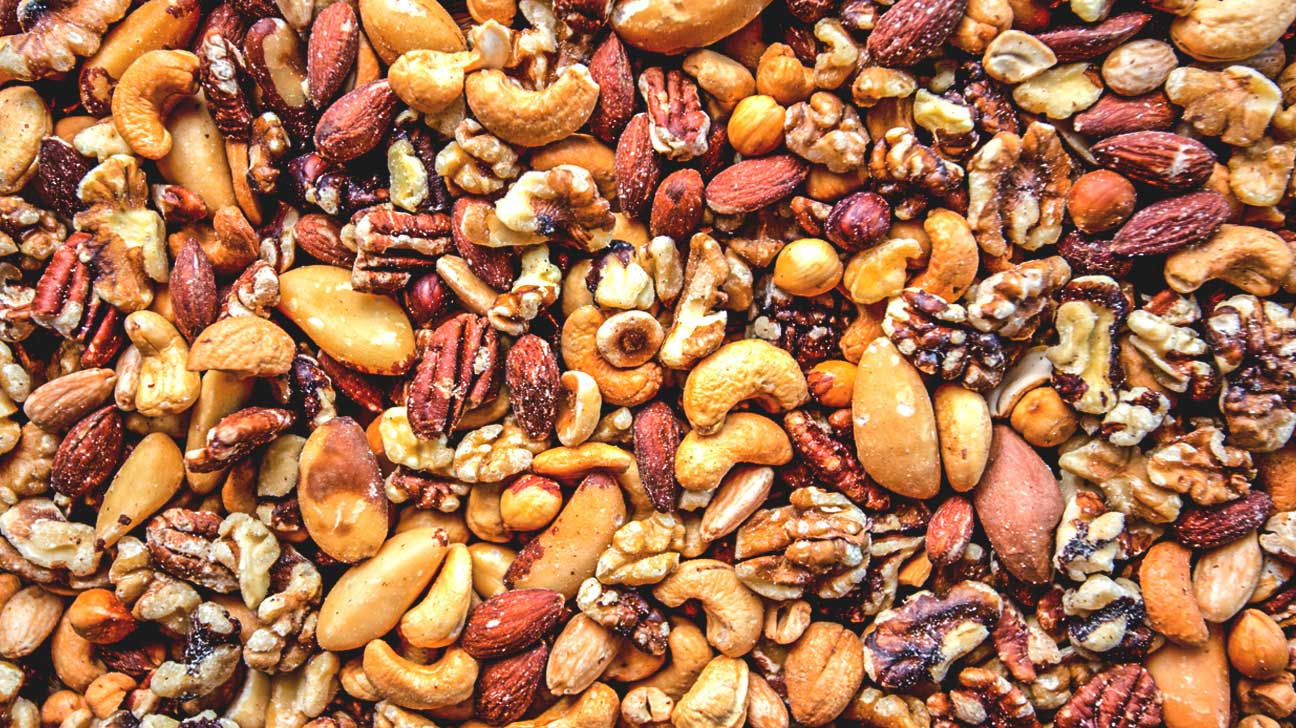You’re Not Crazy… Nuts Are Good for Your Heart
Researchers say peanuts, walnuts, and tree nuts can reduce your risk of stroke and heart attack. The more you eat, the better.
Eating several small servings of nuts every week may lower your risk of heart attack and stroke.
That’s the finding of one of the largest studies on nuts to date.
Researchers from the Harvard T.H Chan School of Public Health studied 210,000 people in three large prospective studies with a 32-year follow up.
The participants’ nut consumption was assessed with food frequency questionnaires.
The researchers said they found a significant association between the consumption of nuts and a lower risk of cardiovascular problems.
“People who regularly eat nuts, including peanuts, walnuts, and tree nuts, have a lower risk of developing cardiovascular disease or coronary heart disease compared to people who never, or almost never, eat nuts. We found a consistent inverse association between total nut consumption and total cardiovascular disease (14 percent lower risk for those consuming nuts five or more times per week) and coronary heart disease (20 percent lower risk),” Marta Guasch-Ferré, PhD, an author of the study and a research fellow in nutrition, told Healthline.
The researchers found that those who consumed a handful of nuts (about 28g or one ounce) five times or more each week had the lowest risk of cardiovascular disease and coronary heart disease.
“Each 28g increase in nut intake was associated with a 6 percent lower risk of cardiovascular disease and 13 percent lower risk of coronary heart disease. So, I’d say that the recommendations should be to consume four to seven servings per week of any type of nuts in a context of a healthy diet,” Guasch-Ferré said.
Heart disease is the leading cause of death for both men and women in the United States.
About one in four deaths every year in the country are due to heart disease.
That equates to 610,000 people.
About 735,000 Americans have a heart attack every year, and 210,000 of those happen in people who have already had a heart attack.
Why nuts are good for the heart
Nuts have long been regarded as a healthy snack option with numerous health benefits.
As well as being a good source of protein, nuts also contain healthy fats and other substances that are good for the heart.
“Nuts contain a healthy type (monounsaturated) of fat that helps lower the cholesterol in the blood, and therefore is heart protective. Nuts also contain fiber and other active nutrients that seem to decrease inflammation in the body, which also is heart protective,” Lauri Wright, PhD, an assistant professor in public health at the University of South Florida, told Healthline.
She says eating even a small amount of nuts will be beneficial for your health.
“Research has shown that one ounce of nuts is protective. That is 24 almonds, 12 macadamia nuts, 14 walnut halves, 35 peanuts, or 18 cashews,” she said.
The new view on fats
Attitudes toward fats and heart health have been changing in recent times.
Protecting your heart is no longer just a case of cutting out all fats. It’s more focused on consuming the right kinds of fats.
“We used to believe that total fat was the risk for heart disease. Today, we have more and more studies that show us it is the type of fat that is related to heart health. Specifically, saturated fats and trans fats, found in beef, pork, dairy, butter, and coconut, are harmful to the heart while monounsaturated and polyunsaturated fats (fish, chicken, nuts, avocado, olive oil) are heart healthy,” Wright said.
Dietary fats, like those found in nuts, support cell growth and give the body energy.
They also assist the body in absorbing some nutrients, producing certain hormones, and protecting your organs.
In the Harvard study, peanuts, walnuts, and tree nuts such as pistachios, almonds, hazelnuts, and cashews, were all associated with a lower risk of cardiovascular disease and coronary heart disease.
The consumption of peanuts and walnuts was also associated with a lower risk of stroke.
Not all nuts are the same
Guasch-Ferré notes there are limitations to the study, such as whether nuts were flavored or prepared in a specific way.
“There was not data on how the nuts were prepared, so the influence of preparation methods was not able to be tested. We weren’t able to differentiate between salted and unsalted nuts and it is likely that it is not the same to consume raw or roasted nuts, which we know is beneficial for health, rather than to consume peanuts covered in chocolate or nuts with high amounts of sodium,” she said.
Jennifer McDaniel, a registered dietitian, said it’s best to stick to unsalted nuts where possible.
“Salted or flavored varieties tend to be higher in sodium and sugar. Instead, season them yourself with a pinch of sea salt, herbs or spices, grated citrus peel, or even a drizzle of honey. The results will be better for you, and not to mention, more delicious,” she said.


Comments
Post a Comment